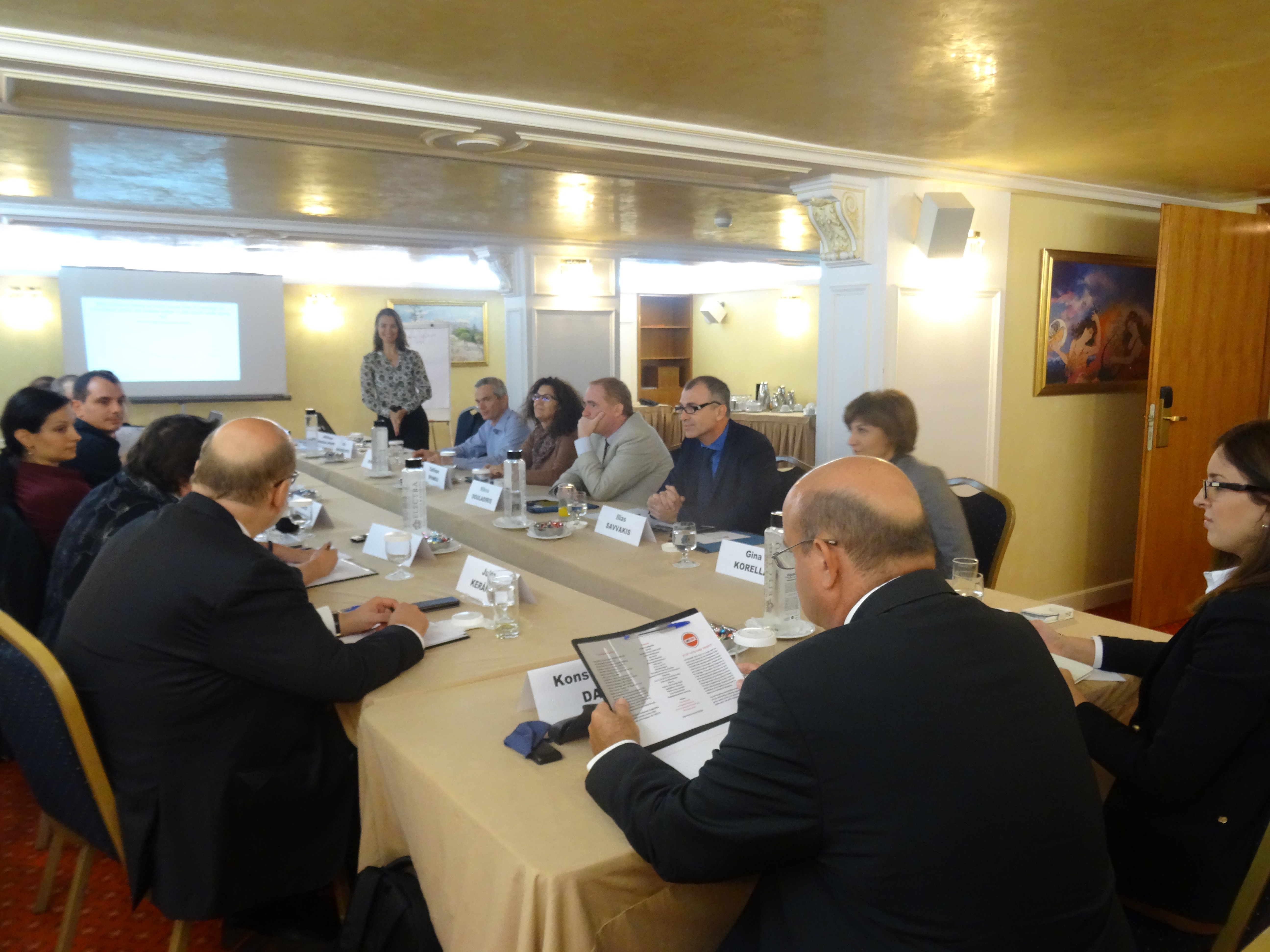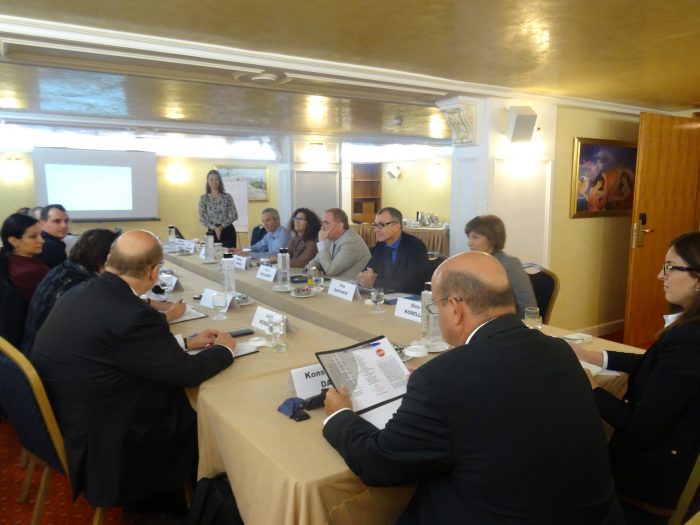 On 21 October 2016, ELIAMEP organised in cooperation with Hertie School of Governance a focus group on the topic of corruption and good governance in Greece. The focus group took place in the framework of the Anticorrp project (www.anticorrp.eu) and it was led by Alina Mungiu-Pippidi, professor of policy analysis and democracy at Hertie. The aim of the focus group was to discuss key issues concerning corruption and anti-corruption efforts in Greece in order to generate specialised knowledge in the field. The focus group brought together participants from the academia, the public sector, anti-corruption bodies, staff from the European institutions, legal practitioners and representatives from civil society.
On 21 October 2016, ELIAMEP organised in cooperation with Hertie School of Governance a focus group on the topic of corruption and good governance in Greece. The focus group took place in the framework of the Anticorrp project (www.anticorrp.eu) and it was led by Alina Mungiu-Pippidi, professor of policy analysis and democracy at Hertie. The aim of the focus group was to discuss key issues concerning corruption and anti-corruption efforts in Greece in order to generate specialised knowledge in the field. The focus group brought together participants from the academia, the public sector, anti-corruption bodies, staff from the European institutions, legal practitioners and representatives from civil society.
The focus group started with a presentation of the Anticorrp project and the concept of corruption that is used in its framework. Alina Mungiu-Pippidi explained that corruption should be understood as a ‘governance regime’, encompassing any form of favouritism, legal or illegal, which results in the privilege or discrimination of citizens and companies by public authorities. Participants were subsequently invited to react to various questions. The discussion focused in particular on the following issues:
- Why is Greece below the EU average on corruption? Is the country as corrupt as it was? Has there been any real redress?
- Is there a domestic demand for less corruption? If yes, what forms does it take?
- Has the Greek deficit been caused by corruption? If there are any causal links, have they been removed?
- Has Greece become a merit-based society? Does corruption lead to brain drain? What should be done in order to promote meritocracy?
- Corrupt societies discourage innovation. Is this true in the case of Greece? If yes, is any action taken to prevent this?
- Are EU funds a resource for corruption or one for redress?
Participants exchanged views and opinions on the above mentioned themes and more broadly, they had a fruitful discussion on the pros and cons of anti-corruption strategies in Greece. One of the points they tended to agree upon was the significant improvements brought to the legal framework during the past few years in the context of the crisis, and largely in response to the reforms that the Greek government agreed with its lenders to undertake. The institutional anti-corruption arsenal has been substantially strengthened. However, implementation problems were said to persist mainly due to limited resources, the lack of personnel and expertise, and the absence of coordination and interconnected procedures. Participants also agreed on the lack of objective surveys and statistics on corruption in Greece. This allowed Prof. Mungiu-Pippidi to suggest research avenues for the future. For more information on the focus group, you can contact Dia Anagnostou ([email protected]), Evangelia Psychogiopoulou ([email protected]) and Dimitri A. Sotiropoulos ([email protected]).



